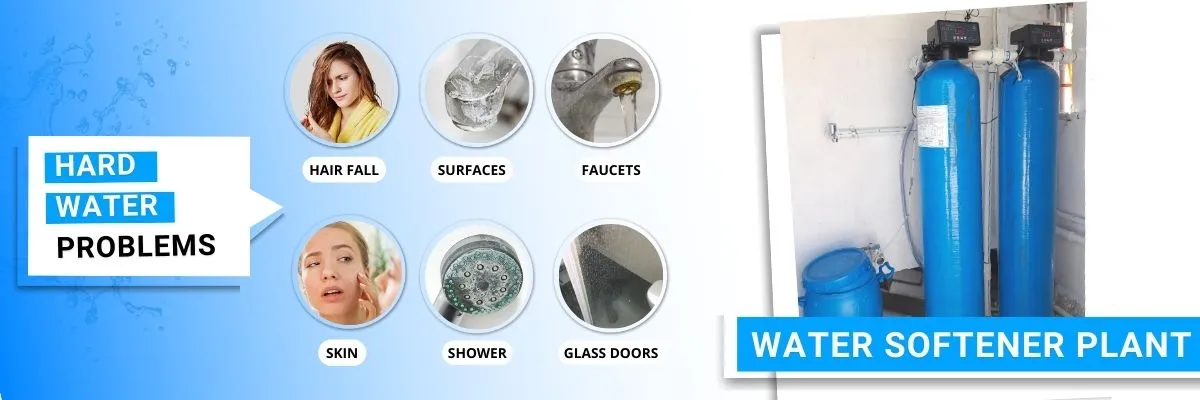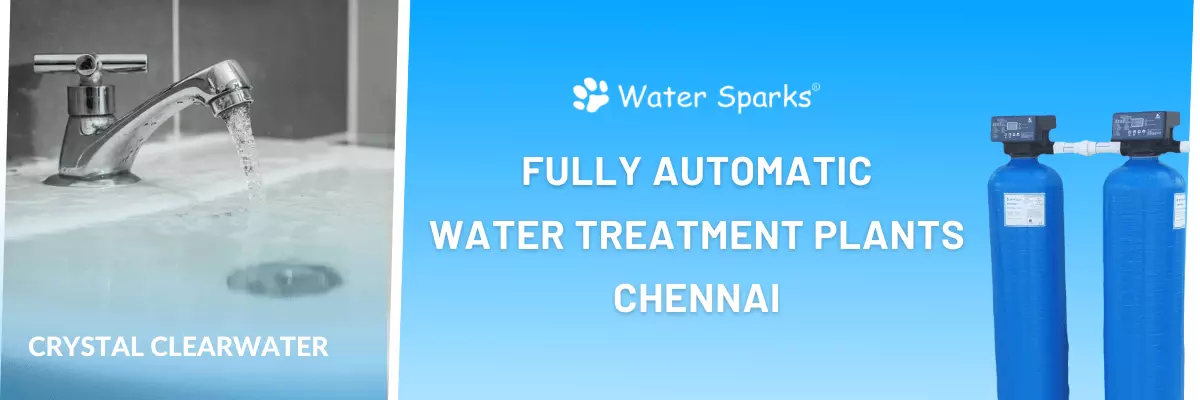
Water Softener Plant Filtration System
Hard water refers to water that contains high levels of dissolved minerals, particularly calcium and magnesium ions. These minerals are naturally present in the Earth’s crust and can dissolve into groundwater as it passes through rocks and soil. As a result, the water becomes “hard” and can have several effects on both the environment and human activities.
The hardness of water is typically measured in terms of the concentration of calcium carbonate (CaCO3) in the water, expressed as parts per million (ppm) or milligrams per liter (mg/L). Water with a low concentration of calcium carbonate is considered soft, while water with a high concentration is considered hard.
Hard water can also have practical implications for human activities. For example, the presence of dissolved minerals in hard water can interfere with the effectiveness of certain cleaning agents, such as soaps and detergents. This is because the minerals can react with the soap, forming a residue known as soap scum, which reduces the cleaning power of the soap. In addition, hard water can leave mineral deposits on plumbing fixtures, appliances, and surfaces, leading to scaling and reduced efficiency.
To address the issues associated with hard water, various water treatment methods can be employed. One common approach is water softening, which involves removing or reducing the concentration of minerals responsible for water hardness. This can be achieved through processes like ion exchange, reverse osmosis, or lime softening. By reducing the hardness of water, these methods help alleviate the negative effects on both the environment and human activities.
In summary, hard water is a result of high mineral content, particularly calcium and magnesium ions, in groundwater. It can have impacts on aquatic ecosystems and interfere with certain human activities. Water treatment methods can be employed to reduce water hardness and mitigate these effects.
Water Softener Plant | Chennai
A water softener plant, also known as a water softening plant or a water softening system, is a facility or setup that is designed to remove the hardness-causing minerals from water and produce soft water. Softening water involves the process of ion exchange, where calcium and magnesium ions are exchanged with sodium or potassium ions.
Although I cannot provide images directly, you can search online for “water softener plant” to find visual representations, diagrams, or photographs of water-softening systems to get a better understanding of their physical appearance.
In a water softener plant, the main components typically include:
- Raw Water Intake: The source water, such as groundwater or surface water, enters the water-softening plant through an intake system.
- Pre-Treatment: The raw water may undergo pre-treatment processes to remove larger particles, sediment, or organic matter. This can involve steps like screening, sedimentation, or filtration.
- Softening Units: The heart of the water softener plant consists of one or more softening units. These units contain ion exchange resin beds, usually made of polystyrene sulfonate resin. The resin beads attract and retain the calcium and magnesium ions while releasing sodium or potassium ions into the water.
- Regeneration System: Over time, the resin beds become saturated with calcium and magnesium ions and need to be regenerated. The regeneration system typically involves flushing the resin bed with a concentrated brine solution containing sodium or potassium chloride. This process displaces the accumulated hardness ions and recharges the resin for further softening.
- Rinse Cycle: After regeneration, a rinse cycle is carried out to remove residual brine and any impurities from the resin bed.
- Soft Water Storage: The softened water, now free from excessive calcium and magnesium ions, is stored in a dedicated tank or reservoir for later use.
Water softener plants can vary in size and complexity, depending on the volume of water to be treated and the specific requirements of the application. They can be found in various settings, including industrial facilities, residential buildings, hotels, hospitals, and commercial establishments where hard water can cause issues such as scaling, appliance inefficiency, or reduced effectiveness of cleaning agents.

Avoid Impulsive Buying - Choose the Right System.
It is important to exercise caution when purchasing water filters, particularly online, to ensure that you are not falling victim to scams or misleading products. While it would be inaccurate to label all online small filters for hard water as scams, there are some factors to consider:
- Insufficient Capacity: Small filters may not have the capacity to effectively treat hard water. Treating hard water requires a certain level of contact time with the treatment media or resin to adequately remove the minerals causing hardness. Many small filters may not have the necessary size or capacity to provide effective treatment.
- Lack of Proper Testing or Certification: Scam filters often lack proper testing and certification from reputable independent organizations such as NSF International or the Water Quality Association. These certifications validate the performance and claims made by the filter manufacturer. Without proper certification, it is challenging to verify the effectiveness and reliability of the filter.
- Exaggerated Claims: Scam filters may make exaggerated claims about their ability to completely remove hardness minerals from water. It is important to be skeptical of products that promise complete water softening using small, inexpensive filters. Treating hard water typically requires specialized equipment and processes specifically designed for water softening.
- Poor Build Quality and Durability: Some scam filters may be made from low-quality materials, leading to leaks, reduced filtration effectiveness, or a short lifespan. They may lack proper seals or durability, resulting in compromised performance.
To Avoid Falling for Scams When Purchasing Online Filters for Hard Water:
- Research and Read Reviews: Before making a purchase, research the product thoroughly and look for customer reviews from reliable sources. This can provide insights into the experiences of other users and help you make an informed decision.
- Seek Reputable Brands: Stick to well-known and established brands that have a positive reputation in the industry. Reputable brands often provide better customer support, reliable products, and appropriate solutions for treating hard water.
- Verify Certifications: Look for filters that have been tested and certified by reputable organizations like NSF International or the Water Quality Association. These certifications ensure that the filter has been evaluated and meets specific standards for contaminant reduction or water softening.
- Consider Professional Advice: If you are unsure about the best approach for treating hard water, consider consulting a water treatment professional. They can assess your specific water quality needs and recommend suitable treatment options.
